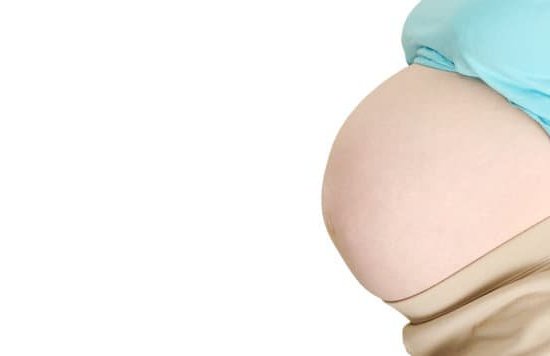Pregnancy tests are essential tools for women who suspect they may be pregnant. However, a common question that arises is, “Does pregnancy tests expire?” It is crucial to understand the importance of pregnancy tests and the need to ensure their accuracy in providing reliable results. This article delves into the concept of expiration dates on pregnancy tests, their shelf life, potential health risks associated with expired tests, and guidelines for proper disposal.
When it comes to confirming a possible pregnancy, accuracy is key. Understanding the factors that can affect the reliability of a pregnancy test is essential for making informed decisions about which test to use. One such factor is the expiration date of the test.
Like many other products, pregnancy tests also come with an expiration date, which indicates the date until which the test is guaranteed to provide accurate results. This article will explore how expiration dates are determined for pregnancy tests and what can happen if an expired test is used.
In addition to discussing expiration dates, this article will also delve into shelf life and storage conditions as contributing factors to a pregnancy test’s expiration. By understanding these aspects, individuals can make informed choices about when and how to use a pregnancy test to ensure its accuracy in detecting a potential pregnancy.
Expiration Date
Pregnancy tests, like many other medical products, do indeed have an expiration date. This is typically printed on the packaging and indicates the date until which the test is expected to remain accurate and reliable. The expiration date is important to consider when using a pregnancy test as an expired test may not provide accurate results. So, what factors contribute to the expiration of pregnancy tests?
The main factor that contributes to the expiration of pregnancy tests is the integrity of the components used in the test. Over time, the materials used in the test, such as antibodies and dye, can degrade and affect the test’s ability to detect pregnancy hormones accurately. Additionally, environmental factors such as heat, moisture, and sunlight can also impact the shelf life of a pregnancy test.
The typical shelf life of a pregnancy test is around 2-3 years from the manufacturing date. However, this can vary depending on the brand and specific product. It’s important to note that proper storage conditions can also affect the expiration of a pregnancy test. Storing tests in a cool, dry place away from direct sunlight can help prolong their shelf life.
Shelf Life
Pregnancy tests are essential tools for women who want to determine if they are pregnant. However, it is crucial to understand that these tests do have expiration dates, and it is important to consider the shelf life of pregnancy tests. The shelf life of a pregnancy test refers to the period during which the test remains effective and reliable for providing accurate results.
Factors Affecting Shelf Life
The typical shelf life of a pregnancy test can vary depending on several factors. One significant factor is how the test is stored. Most pregnancy tests have a longer shelf life when stored in a cool, dry place away from direct sunlight and extreme temperatures. Exposure to excessive heat or humidity can accelerate the expiration process of the test, reducing its effectiveness.
Typical Shelf Life
On average, most pregnancy tests have a shelf life of about two to three years from the date of manufacture. However, it is essential to check the specific expiration date printed on the packaging of the test. This date indicates when the manufacturer guarantees the test’s accuracy and reliability. Using a pregnancy test past its expiration date can result in inaccurate results, leading to confusion and potential health risks.
Storage Conditions
Proper storage conditions play a vital role in maintaining the shelf life of pregnancy tests. It is advisable to store these tests at room temperature, between 36-86 degrees Fahrenheit (2-30 degrees Celsius). Avoid storing them in places like bathrooms with high humidity levels or areas prone to temperature fluctuations, such as near windows or heaters.
As such, understanding the typical shelf life of pregnancy tests and being mindful of their storage conditions is essential for ensuring accurate results when using these tests.
Accuracy
When it comes to pregnancy tests, accuracy is of utmost importance. Using an expired pregnancy test can have potential consequences on the accuracy of the results, leading to uncertainty and unnecessary stress for individuals who rely on these tests to confirm or rule out a potential pregnancy.
Effects of Expiration on Accuracy
The expiration date on a pregnancy test is not just a suggestion; it is a crucial factor that impacts the reliability of the results. When a pregnancy test expires, the chemicals and components within the test may degrade, affecting its ability to detect pregnancy hormones accurately. This degradation can lead to false negative or false positive results, creating confusion for individuals who are attempting to interpret the outcome of the test.
Impact on Decision Making
Using an expired pregnancy test can significantly impact decision making related to reproductive health. In cases where individuals are trying to conceive or are concerned about an unplanned pregnancy, relying on inaccurate results due to an expired test can lead to emotional distress and potentially misguided choices. It is essential for individuals to be able to trust the results of their pregnancy tests, which is why using expired tests should be avoided at all costs.
Seeking Alternatives
To ensure accurate results and avoid potential consequences associated with using expired pregnancy tests, individuals should always check the expiration date before using a test. Additionally, if there are any doubts about the viability of a test or if it is past its expiration date, it is advisable to use a new, unexpired test for reliable results and peace of mind regarding reproductive health.
Warning Signs
When it comes to taking a pregnancy test, it is important to ensure that the test is not expired in order to obtain accurate results. But how does one know if a pregnancy test has expired?
The expiration date of a pregnancy test is typically printed on the packaging, and it is crucial to check this date before using the test. Most pregnancy tests have a shelf life of around 2-3 years, but this can vary depending on the brand and storage conditions.
One way to recognize if a pregnancy test is no longer viable is to check for any signs of damage or tampering on the packaging. If the packaging appears to be compromised in any way, it is best not to use the test as it may have been exposed to conditions that could affect its accuracy. Additionally, if the expiration date has passed, it is recommended to discard the test and use a new one to ensure reliable results.
It is also important to pay attention to any changes in the appearance of the testing strip or any unusual odors coming from the test. Any discoloration or strange smells could be indicators that the test has expired and should not be used. Ensuring that a pregnancy test is not expired is crucial in obtaining accurate results and avoiding potential health risks associated with using an invalid test.
| Warning Signs | How to Recognize if a Test Is No Longer Viable |
|---|---|
| Check for signs of damage or tampering on the packaging | If expiration date has passed, discard and use a new one |
| Pay attention to changes in appearance of testing strip | Avoid using if there are any unusual odors coming from the test |
Health Risks
When it comes to using expired pregnancy tests, there are potential health risks that individuals should be aware of. The expiration date on a pregnancy test is not just a suggestion, but rather an important factor in ensuring the accuracy and safety of the results. Using an expired pregnancy test can lead to unreliable results, which can have significant implications for an individual’s reproductive health and decision-making process.
To understand the potential health risks associated with using expired pregnancy tests, it is important to consider the factors that contribute to their expiration. The shelf life of a pregnancy test is influenced by various factors such as storage conditions, exposure to heat or humidity, and the quality of the materials used in manufacturing. Over time, these factors can affect the reliability and efficiency of a pregnancy test, leading to inaccurate results.
It is also crucial to recognize the importance of using a valid test for accurate results. Expired pregnancy tests may provide false positives or false negatives, which can have serious implications for an individual’s reproductive health decisions. Inaccurate results could lead to delays in seeking prenatal care or unnecessary stress and anxiety. Therefore, it is essential for individuals to prioritize using valid and unexpired pregnancy tests for reliable results that safeguard their health and well-being.
- Potential Health Risks Associated with Using Expired Pregnancy Tests
- False positive or false negative results
- Delayed or inadequate prenatal care
- Increased stress and anxiety
- Importance of Using a Valid Test for Accurate Results
- Reliable information for reproductive health decisions
- Early detection of pregnancy or accurate reassurance
- Peace of mind and reduced uncertainty
It is crucial for individuals to pay attention to the expiration date of pregnancy tests and ensure that they are using valid and unexpired tests for accurate results that prioritize their health and well-being over convenience or cost-cutting measures.
Proper Disposal
When it comes to disposing of expired pregnancy tests, it’s important to prioritize safety and environmental consciousness. While it may be tempting to simply throw them in the trash, there are guidelines that should be followed to ensure proper disposal.
Here are some steps to properly dispose of expired pregnancy tests:
1. Check the expiration date: The first step in disposing of an expired pregnancy test is to check the expiration date. If the test is past its expiration date, it is no longer considered reliable for accurate results.
2. Contact your local waste management facility: Many areas have specific guidelines for disposing of medical waste, including expired pregnancy tests. Contact your local waste management facility to inquire about their policies and procedures for disposing of these items.
3. Use a hazardous waste disposal service: If your local waste management facility does not accept medical waste or expired pregnancy tests, seek out a hazardous waste disposal service. These services specialize in the proper disposal of potentially hazardous materials and can ensure that your expired pregnancy tests are disposed of safely and responsibly.
By following these guidelines for proper disposal, you can help ensure safety and environmental consciousness when getting rid of expired pregnancy tests.
Remember, while it may be tempting to simply toss an expired pregnancy test in the trash, doing so can pose potential risks to both human health and the environment. By taking the time to dispose of these items properly, you can contribute to a safer and more sustainable future.
Conclusion
In conclusion, ensuring the accuracy and reliability of pregnancy tests is crucial for individuals who are trying to conceive or determine their pregnancy status. The expiration date of a pregnancy test plays a significant role in its validity and should not be overlooked. While the concept of pregnancy tests expiring may seem surprising to some, it is essential to understand that all healthcare-related products have a limited shelf life, including pregnancy tests.
The shelf life of a pregnancy test can vary depending on various factors, such as storage conditions and the brand of the test. It is important for individuals to check the expiration date before using a pregnancy test, as using an expired test can lead to inaccurate results. Furthermore, expired tests may also pose potential health risks due to the degradation of their components over time.
To prevent any confusion or uncertainty regarding the validity of a pregnancy test, individuals should familiarize themselves with the indicators of an expired test and properly dispose of any outdated tests. By understanding the importance of checking expiration dates and recognizing warning signs, individuals can ensure that they are using a reliable and accurate pregnancy test when needed. Ultimately, taking these precautions contributes to both personal well-being and environmental consciousness when disposing of expired tests appropriately.

Welcome to my fertility blog. This is a space where I will be sharing my experiences as I navigate through the world of fertility treatments, as well as provide information and resources about fertility and pregnancy.





